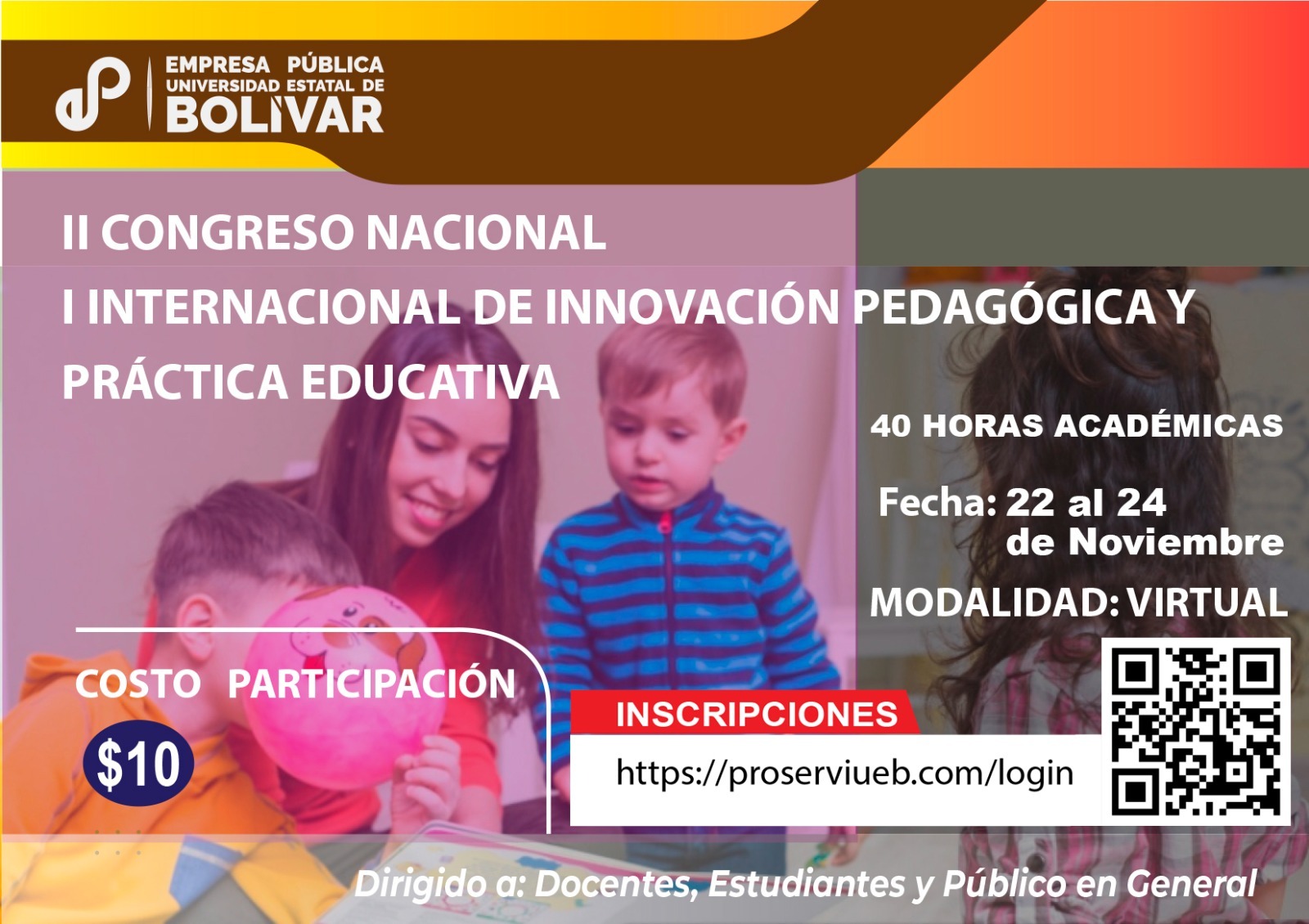La evaluación como estrategia de aprendizaje en niños de educación inicial en una unidad educativa intercultural bilingüe
Palabras clave:
Evaluación, estrategias, métodos, aprendizaje, niñosResumen
En este trabajo se usan varios instrumentos de evaluación como, la autoevaluación de los estudiantes, la coevaluación entre sus pares, la evaluación del docente al estudiante, y la evaluación de los estudiantes al docente, para conocer y contrastar sobre como los estudiantes y docentes ven el proceso de aprendizaje. Se evaluó a 60 estudiantes de 4 a 5 años de una Unidad Educativa Intercultural Bilingüe y tres docentes del Centro de Educación Inicial. Del análisis de las encuestas se encontró que en la autoevaluación los estudiantes se presentan optimistas ante sus faltas o deficiencias, considerando que pueden mejorar con el tiempo. En la coevaluación los pares fueron más exigentes y detallistas con sus compañeros que lo que fueron en la autoevaluación. En la evaluación del docente a los estudiantes, detallan algunos aspectos de sus estudiantes que deben ser explorados. En la evaluación de los estudiantes al docente, estos los consideran de manera generosa recibiendo buenas apreciaciones sobre sus capacidades educativas. De estos resultados el docente se debe centrar en construir y reconstruir los aprendizajes duraderos y específicos, conociendo las debilidades y fortalezas, de sus estudiantes y propias, para organizar, planificar y estructurar el aprendizaje donde la evaluación sea un proceso riguroso, paciente y estratégico.
Descargas
Citas
Abdelrahman, G., & Wang, Q. (2023). Learning data teaching strategies via knowledge tracing. Knowledge-Based Systems, 269,110511. https://doi.org/10.1016/j.knosys.2023.110511
Anthonysamy, L., & Singh, P. (2023). The impact of satisfaction, and autonomous learning strategies use on scholastic achievement during Covid-19 confinement in Malaysia. Heliyon, 9, artículo e12198. https://doi.org/10.1016/j.heliyon.2022.e12198
Baidoo-Anu, D., Asamoah, D., & Adusei, A. (2023). Teachers’ beliefs and attitudes towards students’ self-assessment: A latent profile analisis. International Journal of Educational Research Open, 5, 100275. https://doi.org/10.1016/j.ijedro.2023.100275
Campos, R., & Rodriguez-Lluesma, C. (2022). Authentic learning through the case method in customized executive programs in Latin America. The International Journal of Management Education, 20(1-March),100599. https://doi.org/10.1016/j.ijme.2022.100599
Daoudi, I., Chebil, R., Tranvouez, E., Chaari, W., & Espinasse, B. (2021). Improving Learners’ Assessment and Evaluation in Crisis Management Serious Games: An Emotion-based Educational Data Mining Approach. Entertainment Computing,
(May), 100428. https://doi.org/10.1016/j.entcom.2021.100428
Finefter-Rosenbluh, I., Ryan, T., & Barnes, M. (2021). The impact of student perception surveys on teachers’ practice: Teacher resistance and struggle in student voice- based assessment initiatives of effective teaching. Teaching and Teacher Education,
,103436. https://doi.org/10.1016/j.tate.2021.103436
Guenther, A. (2021). “It should be helping me improve, not telling me I'm a bad teacher”: The influence of accountability-focused evaluations on teachers' professional identities. Teaching and Teacher Education, 108 (December),103511. https://doi.org/10.1016/j.tate.2021.103511
Liu, J. (2022). Exploring the dynamic self-assessment process of students across different competency groups. Studies in Educational Evaluation, 75,101215. https://doi.org/10.1016/j.stueduc.2022.101215
McMillan, A., Solanelles, P., & Rogers, B. (2021). Bias in student evaluations: Are my peers out to get me?. Studies in Educational Evaluation, 70,101032. https://doi.org/10.1016/j.stueduc.2021.101032
Molina, M., Bruinc, A., & Haelermansa, C. (2022). A conceptual framework to understand learning through formative assessments with student response systems: The role of prompts and diagnostic cues. Social Sciences & Humanities Open, 6, 100323. https://doi.org/10.1016/j.ssaho.2022.100323
Morrison, L., & Jacobsen, M. (2023). The role of feedback in building teaching presence and student self-regulation in online learning. Social Sciences & Humanities Open,
,100503. https://doi.org/10.1016/j.ssaho.2023.100503
Petkova, A., Domingo, M., & Lamm. (2021). Let’s be frank: Individual and team-level predictors of improvement in student teamwork effectiveness following peer- evaluation feedback. The International Journal of Management Education, 19(3),
https://doi.org/10.1016/j.ijme.2021.100538
Ploran, E., Weingartner, K., Overman, A., Lee, J., Masnick, A., & Finuf, K. (2023).
Learning to Learn: A pilot study on explicit strategy instruction to incoming college students. Acta Psychologica, 232,103815. https://doi.org/10.1016/j.actpsy.2022.103815
Pyle, A., DeLuca, C., Wickstrom, H., & Danniels, E. (2022). Connecting kindergarten teachers’ play-based learning profiles and their classroom assessment practices. Teaching and Teacher Education, 119 (November), 103855. https://doi.org/10.1016/j.tate.2022.103855
Segovia, C., & Cabello, J., (2017). Evaluación docente desde la percepción del estudiante.
LEX, 19(XV - 2017 – I), 411-432. http://dx.doi.org/10.21503/lex.v15i19.1384
Vargas-Madriz, L., & Nocente, N. (2023). Exploring students' willingness to provide feedback: A mixed methods research on end-of-term student evaluations of
teaching. Social Sciences & Humanities Open, 8(1), 100525. https://doi.org/10.1016/j.ssaho.2023.100525.
Zurbriggen, C., Nusser, L., Krischler, M., & Schmitt, M. (2023). Teachers' judgment accuracy of students’ subjective well-being in school: In search of explanatory factors. Teaching and Teacher Education, 133,104304. https://doi.org/10.1016/j.tate.2023.10430
Descargas
Publicado
Cómo citar
Número
Sección
Licencia
Derechos de autor 2024 Journal of Science and Research

Esta obra está bajo una licencia internacional Creative Commons Atribución-NoComercial-SinDerivadas 4.0.
Los autores mantienen los derechos sobre los artículos y por tanto son libres de compartir, copiar, distribuir, ejecutar y comunicar públicamente la obra bajo las condiciones siguientes:
Reconocer los créditos de la obra de la manera especificada por el autor o el licenciante (pero no de una manera que sugiera que tiene su apoyo o que apoyan el uso que hace de su obra).
No utilizar esta obra para fines comerciales.
Declaración de privacidad
Los nombres y direcciones de correo-e introducidos en esta revista se usarán exclusivamente para los fines declarados por esta revista y no estarán disponibles para ningún otro propósito u otra persona.

